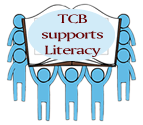So. Cal. Tri-Counties Branch of the IDA
About Dyslexia - Definition
What is dyslexia?
|
|
- A sign of poor intelligence.
- The result of laziness or of not caring.
- A disease.
- Able to be cured with pills or diets.
- An eye problem.
- Outgrown.
But... dyslexics can learn how to learn
The good news is that with appropriate education, understanding, & time, many dyslexics learn to read & write & to develop their special abilities & talents. Many successful people: scientists, artists, athletes & world leaders have dyslexia.
Common Questions Related to Dyslexia
How common are language-based learning disabilities?
- 15-20% of the population have a language-based learning disability.
- Of the students with specific learning disabilities receiving special education services, 70-80% have deficits in reading.
- Dyslexia is the most common cause of reading, writing and spelling difficulties.
- Dyslexia affects males and females nearly equally, and people from different ethnic and socioeconomic backgrounds as well.
Can individuals who are dyslexic learn to read?
- Yes, if children who are dyslexic get effective phonological training in Kindergarten and 1st grade, they will have significantly fewer problems in learning to read at grade level than do children who are not identified or helped until 3rd grade.
- 74% of the children who are poor readers in 3rd grade remain poor readers in the 9th grade. Often they can't read well as adults either.
- It is never too late for individuals with dyslexia to learn to read, process and express information more efficiently. Research shows that programs utilizing multi sensory structured language techniques can help children and adults learn to read.
How do people get dyslexia?
- The causes for dyslexia are neurobiological and genetic. Individuals inherit the genetic links for dyslexia. Chances are that one of the child's parents, grandparents, aunts, or uncles is dyslexic. Read about the symptoms here.
Is there a cure for dyslexia?
- No, dyslexia is not a disease. There is no cure.
- With proper diagnosis, appropriate instruction, hard work and support from family, teachers, friends, and others, individuals who are dyslexic can succeed in school and later as working adults.
Are there specific professions people with dyslexia should pursue?
- No, individuals can succeed in varied fields despite their dyslexia. Examples include:
- Ann Bancroft - First woman in history to cross the ice to both the North and South Poles. Web site: http://www.yourexpedition.com
- David Boies - Trial lawyer whose high-profile clients have included former U.S. Vice President Al Gore, Jr., Napster, and the U.S. Justice Dept. in its antitrust suit against Microsoft.
- Erin Brokovich - Real-life heroine who exposed a cover-up by a major California utility that was contaminating the local water supply. Their actions had severe, even deadly consequences to the members of the community. With her help, the townspeople were awarded a $333 million settlement, the largest ever in a U.S. direct-action lawsuit. (Julia Roberts played her in the movie with the same name.)
- Stephen J. Cannell - Author and Emmy Award-winning TV producer and writer, who has created or co-created more than 38 shows, of which he has scripted more than 350 episodes and produced or executive produced more than 1,500 episodes. His hits include "The Rockford Files," "A-Team," " 21 Jump Street," "Wiseguy," "Renegade" and "Silk Stalkings." Web site: http://www.cannell.com
- Whoopi Goldberg - Actor and comedian, winner of an academy Award for her supporting role in "Ghost," also an Academy Award nomination for her role in "The Color Purple." Web site: http://www.whoopi.com
- Click here for a list of other well-known people thought to have dyslexia or other learning disabilities. None of these people are letting dyslexia hold them back, so encourage students to focus on their strengths and interests!
How do I know if a person is dyslexic?
- If a person exhibits several of the characteristics listed in "Common Signs of Dyslexia" and the difficulties are unexpected for the person's age, educational level, or cognitive abilities, the person should be tested by an educational diagnostician or a team of trained professionals. (It is important to note that the "Common Signs" are indicators, not proof of dyslexia. The only way to verify that an individual is dyslexic is through testing by a qualified examiner/s.)
Sources
- Basic Facts about Dyslexia: What Every Layperson Ought to Know - Copyright 1993, 2nd ed. 1998. The International Dyslexia Association, Baltimore, MD.
- Learning Disabilities: Information, Strategies, Resources - Copyright 2000. Coordinated Campaign for Learning Disabilities, a collaboration of the leading U.S. non-profit learning disabilities organization. Used with permission.
- Research studies sponsored by the National Institute of Child Health and Human Development, National Institutes of Health, Bethesda, MD.
Dyslexia Home | Dyslexia Definition | Dyslexia Symptoms | Dyslexia Facts



